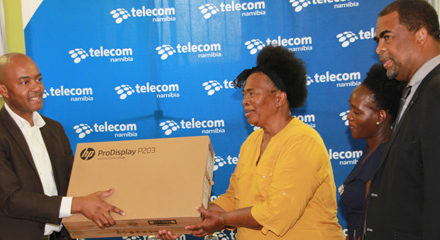
National Carbon Registry launched to synchronise global climate action

By Freeman Ya Ngulu.
UNDP has developed an open-source software programme which allows countries to manage national data and processes for trading carbon credits, effectively.
The programme, called the National Carbon Registry, has recently been accredited as a digital public good (DPG). As a DPG, the registry uses open-source code, which allows countries to replicate and adapt the information to fit their own needs and contexts. The registry’s modules, software and technical documentation can be reused and tailored by countries, which could potentially reduce production costs and implementation timelines.
Effective climate action requires concerted and sufficient investment. Developing countries will need more than US$6 trillion by 2030 to finance their climate action goals (as listed in their Nationally Determined Contributions, or NDCs).
Mark Belinsky, Head of Digital Innovation at the United Nations Development Programme said “It’s been an honour to be part of an incredible team working tirelessly on software with serious implications for the climate. Today, our efforts have borne fruit, and I’m proud to announce that our project – the open-source National Carbon Registry – has been accredited as a Digital Public Good for United Nations Development Programme (UNDP).
This means that Namibia’s National Carbon Registry will play a pivotal role to track, verify, and manage its carbon emissions seamlessly. “By democratizing access to state-of-the-art carbon monitoring systems, we’re levelling the playing field, ensuring that every country – irrespective of its size or economic power – can efficiently work to meet their climate targets.” Belinsky said.
“This is a crucial step in climate change as it is undeniably one of the most pressing challenges of our time. Collective action is the only way forward. With this tool, nations can be more transparent, accountable, and efficient in their commitment to create a greener, more sustainable future for us all,” he said.
“To achieve our ambitious Global Goals for the planet, we need to take an open and informed approach to digital technology that promotes integration and collaboration between different sectors and actors. We must also consider how we can work together to build digital public infrastructure (DPI) that is safe, sustainable, and inclusive for all,” UNDP Administrator Achim Steiner said.
The registry follows national and international best practices based on inputs from countries and is a result of ongoing work by the Digital4Climate (D4C) Working Group, which includes UNDP, the World Bank, the United Nations Framework Convention of Climate Change (UNFCCC) and the European Bank for Reconstruction and Development (EBRD) among others.
Built as an interoperable digital system, it can be integrated with national measurement, reporting and verification (MRV) systems and international digital systems such as UNDP’s voluntary cooperation platform and the global platform Climate Action Data Trust (CAD Trust) launched by the World Bank.
“Developing carbon markets is an investment in our sustainable future. Digital market infrastructure will be critical to scale-up high integrity, transparent carbon markets that can be used by countries to increase the level of climate action and ambition. This is why the World Bank’s Climate Warehouse programme is working closely with our partners on the implementation of this open-source carbon registry platform,” said Jürgen Voegele, Vice President for Sustainable Development at the World Bank.













































